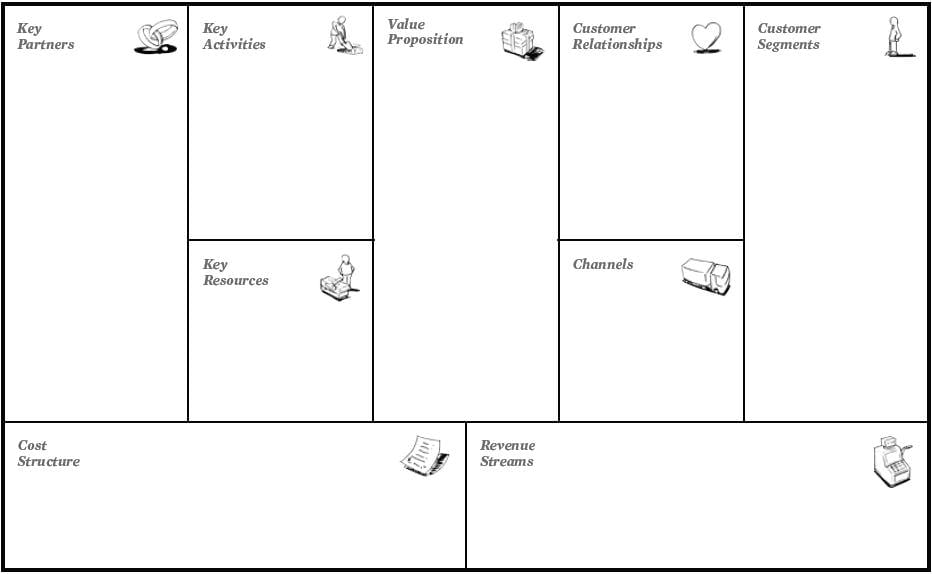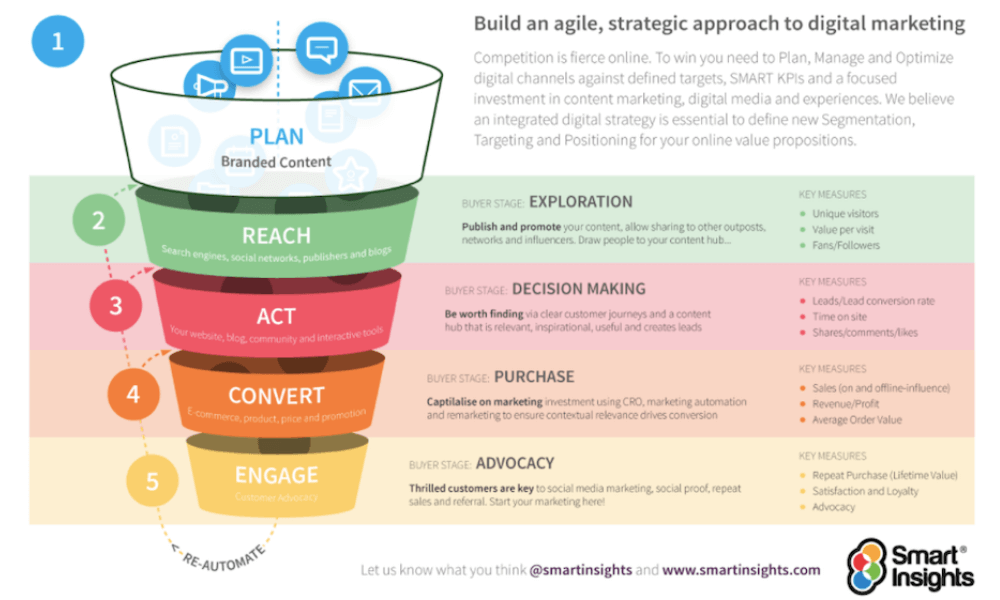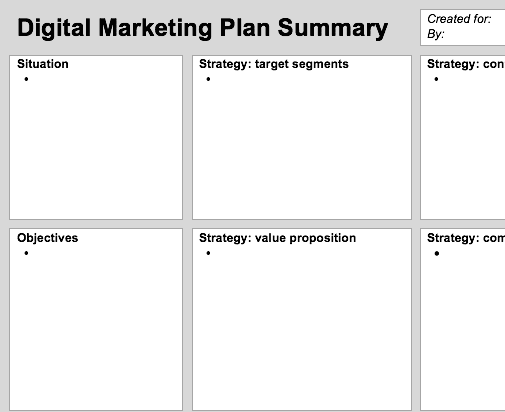How do you summarise a business model canvas or marketing plan for online startups using a single sheet of A4? Our top business model frameworks for you
Defining a clear online business model framework is essential for a new startup online business to help create a sustainable business and communicate the features of their new business to partners and within the company.
Reviewing business models is also important for existing businesses thinking about options to refine their business model or add new services to their offerings in the light of new opportunities made possible by the Internet.
As you know, I'm a big fan of simple frameworks to help communicate strategy. In particular, I love the Business Model Canvas which is a valuable framework for summarizing strategy for online businesses. It was published as part of a co-creation creative commons project involving 470 practitioners from 45 countries.
We feature it as part of our digital toolkit where we give an example in our online startup business model template. It’s also available as an app and downloadable templates on the Business Model Generation site. Of course, it can be used for all business models, but it is particularly suitable for online startups.

Business model template - Source: BusinessModelGeneration.com
The business model canvas is also a valuable framework for summarizing your marketing strategy. The main sections of the canvas in a logical order to consider them are:
- 1. Value proposition. This is at the heart of what the business offers to its audiences and is arguably most to important success.
- 2. Customer segments. Different target audiences the value propositions will appeal to. In the business model canvas, the alternatives recommended are mass market, niche market, segmented (broken down further) or a range of diverse segments.
- 3. Customer relationships. The types of relationships that will be formed, for example, self-service, automated services, communities or more personal assistance. Co-creation of content may be part of this.
- 4. Channels. The methods by which the organization’s services will be delivered and the audiences reached.
- 5. Key partners. To exploit online and offline value networks, forming partnerships gives an opportunity of expanding reach and taking advantage of existing organizations and online influencers that have built an audience.
- 6. Activities. Which are the main activities that need to be performed to deliver the value proposition to develop revenue?
- 7. Resources. Different types of process and people to complete the activities to create and deliver the value proposition.
- 8. Cost structure. Different cost-elements - these should be checked against activities and resources. Costs are classically broken down into Fixed and Variable costs and economies of scale.
- 9. Revenue stream. This is the method by which a business derives income. Common online options are: ad revenue, subscription fees, sales of physical or virtual goods or affiliate-based commission arrangements. Licensing and leasing are other alternatives.
Core Module

Digital strategy success factors
Part of the Digital marketing strategy and planning Toolkit
Learn how to define a structure and scope for your omnichannel marketing strategy
Learn MoreApplying the RACE Framework to your lean canvas approach
The business model canvas great framework, but I always like to think about what the missing elements of frameworks are since the summary can be misleading otherwise.
The Business Model Canvas is arguably missing a method of specifying Key Performance Indicators for evaluating the performance of the business model. I recommend adding these to the relevant sections, in particular for Revenue stream, cost structure, and key activities.
Our popular RACE Framework model allows managers and marketers to optimize their key interactions with customers at each stage of the customer journey. This strategic framework gives indications of metrics and KPIs to track the journey, which is needed for all business models.

Core Module

Structure a plan using Smart Insights’ RACE
Part of the Digital marketing strategy and planning Toolkit
Learn how to structure a comprehensive omnichannel marketing plan, using Smart Insights' RACE
Learn MoreApplying SOSTAC® to your lean canvas approach
PR Smiths SOSTAC® is another popular strategic planning framework for creating a marketing plan. We have a dedicated SOSTAC® Learning Path module for Business Members. Or, see PR Smith's site for more details (www.prsmith.org).
Notably, the Business Model Canvas doesn’t directly consider the impact of different forms of competitors, such as in the situational analysis stage of SOSTAC®. That's why we recommend applying SOSTAC® to inform your planning.
Smart Insights Business Members can also use our blank Word template and B2C example of a one-page summary in this template. This simply takes each part of SOSTAC® and then you overlay specific digital marketing opportunities and challenges across each part of the Smart Insights RACE planning framework - by marketing them up with RACE (plus B, G, R, D for Branding, Governance, Resourcing, Data issues).

Core Module

Structure a plan using SOSTAC®
Part of the Paid media Toolkit
Learn how to use PR Smith’s SOSTAC® framework, a popular tool for structuring business and marketing plans
Learn More











